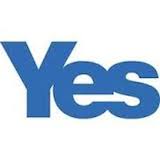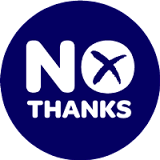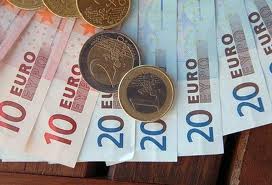Today, 18 September 2014, Scotland goes to the polls to vote on whether to leave the 307-year-old union with England, Wales and Northern Ireland. The consequences could be far-reaching for people well beyond the Scottish borders. Then again, they might not.

NOTE: If you have euros to buy for a pending house purchase abroad and you think it will be a "Yes" vote then consider trading your money sooner rather than later.
For more information on the currency service I can provide please feel free to contact myself...
Rob Harold from Foreign Currency Direct follow this link or phone and ask for myself and quote "Cle France" on our Freephone 0800 328 5884.
You may email me directly at This email address is being protected from spambots. You need JavaScript enabled to view it. with your requirement and quote "Cle France" I will explain the options that are available to you in getting the best exchange rate.
This historic day could result in one of the most volatile days the pound has seen since Britain was forced to exit the Exchange Rate Mechanism (ERM) on the 16th September 1992, dubbed Black Wednesday. With the polls suggesting the vote for the Scottish Independence Referendum is too close to call, the pound really could go either way.
The real risk for sterling however is a Yes vote and the consequences of such an outcome could be dire for the pound. The fact that there is too much uncertainty surrounding how a Scottish departure would take place is only adding to the volatility. There are lots of considerations especially as to the detail of how a Scottish currency would be pegged to the pound as well as how much debt Scotland would take on, which have not been established. There are no contingency plans in place. Whatever the result, it’s not just going to have short term implications.
Even a No vote will carry with it further political issues at Westminster which will go on for years. Now we await the outcome which according to the highlands Chief Counting Officer, her best estimate is for a result at breakfast time tomorrow morning. Let’s all at least hope that George Soros isn’t around, planning on costing the British taxpayer any more money.
If you have a pending currency requirement there is still time today before the outcome so be sure to speak with us to look at your requirement and the potential impact it may have on your transfer.

The suggested consequences of a vote for independence in Scotland have ranged from it being as dangerous as the murder of Franz Ferdinand in 1914 that led to the First World War, to a mild and temporary change in exchange rates. Here we bring together some potential consequences of particular interest to property professionals, both within a newly independent Scotland and in the residual UK (known as rUK) as well as in the wider world.
Scottish house values:
According to UK property portal Zoopla, Scottish independence could knock £31,000 off the average Scottish house value. They predict that a Yes vote would have the same effect as the financial crisis, which reduced Scottish prices by 17.5%. With many companies saying they will move their headquarters from Scotland to England in the event of a Yes, some agents are predicting a fall in demand for high-end housing in cities such as Edinburgh and Glasgow.
It should be noted however, that for many young Scots priced out of Scottish property, which has risen 8.3% in the last two years to an average £177,600 per home, the prospect of falling property prices would encourage a Yes vote. And wouldn’t lower prices encourage new overseas clients? Not so fast, say Zoopla, mortgages will be harder to obtain in Scotland if English mortgage companies stop operating north of the border, while existing mortgage payments may rise if they are paid in a new currency.
Zoopla’s Lawrence Hall said a Yes vote, “would almost certainly have a detrimental effect on Scottish house prices in the short to medium term. The uncertainties on employment, tax, currency, EU membership and interest rates will all play their part and if big business does head south with a ‘Yes’ vote Scotland will lose a significant piece of their service economy with nothing to replace it, leading to a greater supply and reduced demand for housing and a resultant drop in house prices.”
Savills predited: “Potential increased risk [to the Scottish banking sector] would probably mean an independent Scotland incurring higher mortgage rates, putting upward pressure on household finances and potentially driving down the value of housing, as buyers seek affordability. This might lead to the residential market stalling once again, with sellers unwilling to accept lower prices, just as they did during the recent economic downturn.”
UK house prices:
Rightmove predicts a severe slowdown in UK house prices and property transactions following a Yes. “Speculation amongst economic forecasters on topics such as upward pressure on interest rates, availability of wholesale funding for lenders, and the geographic location of major financial institutions are potentially destabilising influences on consumer sentiment,” said Miles Shipside, analyst at Rightmove. Property lawyers Moore Blatch also predict higher rental and selling prices: “If Scotland says yes, we could we see a boost in rental demand and rental inflation in London,” says George Gilpin, senior solicitor at Moore Blatch. “Similarly, as many staff will not necessarily want to move permanently, we could also expect to see demand for pied-a-terres rise. In terms of house prices it is more a possibility of halting the decline caused by the reduction in investment from overseas and therefore more stable prices.”
But isn’t it possible that these arguments are all a bit overblown? Scotland may be a large landmass but its population and its GDP make up considerably less than 10% of the UK. The Yes campaign surely has a point in claiming that the No’s are being overly negative (see poster, right). A bigger question mark may hang over rUK exchange rates and interest rates. Both of these are more than likely to be adversely affected by a Yes vote, but for how long?
One bright spot is from agents on the immediate southern side of the Scottish border who anticipate a boom. One agent in Carlisle told The Guardian: “We will be the nearest economic centre to Scotland, with the rail and motorway infrastructure, so almost perversely we could see a sales increase as firms relocate to Carlisle so that they can stay English-based while doing business with Scotland.”
Scotland and the European Union:
The No campaign has focused on the difficulty an independent Scotland will have in joining the EU, potentially blocked by Spain in an attempt to deter its own separatist movements. The Yes campaign refutes this utterly, and you can see their point. Scotland clearly is in Europe geographically and Spain could hardly block its democratic will for long. The Yes camp say Scotland will simply be able to amend the membership it had as part of the UK. However, at the same time it is looking for opt outs, such as retaining the pound sterling and staying out of the Schengen area, saying: “The Scottish Government, while endorsing the objectives underpinning the Schengen Agreement, has no plans in the foreseeable future to recommend to the people of Scotland that an independent Scotland should begin the process of joining the Schengen area.”
This would be a problem for other Europeans, as no recently joining country has been able to opt out. “The opt outs they’re pushing for would make it very difficult for Scotland to get membership,” said one MEP on the EurActiv website.
That begs the question, would Scottish people currently allowed to work in Europe under EU law be allowed to remain working there and be entitled to the health and social security benefits that being a member of the EU offers? So far, OPP has not been able to get a definitive answer.
The effect on Scottish overseas home buyers:
Richard Way, editor of the Overseas Guides Company tells OPP: “It’s more of an unknown for Scottish people than the remainder of the UK – aside from the downturn sterling might see, albeit temporarily. I’d imagine independence would stall the plans of any Scots on the verge of moving abroad, until certain things were clarified by the new Scottish government. For example, how soon Scotland became a member of the EU would be key to anyone moving within the single bloc. Estate and tax planning of UK assets would be affected by the new Scottish jurisdiction. Pensions – how would a Scottish person’s monthly pension income be affected by the new government and would they still be able to afford a new life in a foreign country? Healthcare and benefits – they’d need clarification on what entitlements they could transfer to their new country. An agent or developer with a particularly high proportion of Scottish clients might notice a quieter period immediately after independence was achieved but arguably this would settle down.”
From an article by Christopher Nye, Editor, OPP Magazine.


Blog submitted by: David of The French Property Network - Cle France.